Are you in need of a reliable notary service to handle your important documents? Whether it's for a real estate transaction, legal paperwork, or any formal agreement, having a trustworthy notary can make all the difference in ensuring a smooth process. In this article, we'll walk you through how to request notary services effectively, along with a handy letter template to simplify your task. So, grab your pen and read on to discover the ins and outs of making your notary request seamless!
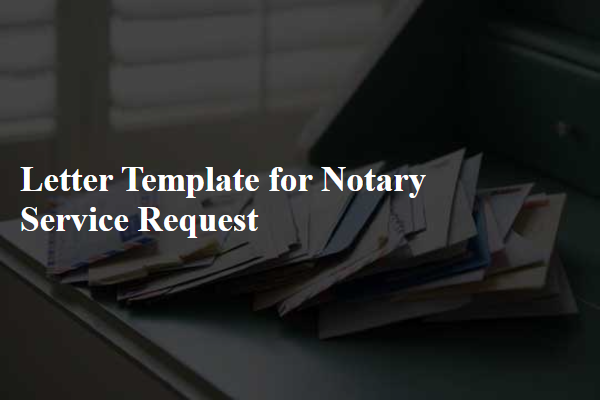
Clear subject line
When requesting notary services, a precise subject line is essential for clarity. "Request for Notary Services - [Your Name] - [Date]" effectively communicates the purpose and provides immediate identification of the sender. This subject line ensures the recipient recognizes the nature of the email at a glance. Including the specific date can help in coordinating the service efficiently, especially if time-sensitive documents are involved. It's crucial to maintain professionalism while keeping the subject line succinct.
Contact information
A notary service request typically requires essential contact information to facilitate the notarization process effectively. Important details include the requester's full name, address, including city and zip code for identification, phone number for immediate communication, and email address for correspondence. Additionally, names of witnesses, if applicable, and specific documents requiring notarization should be highlighted, emphasizing the necessity for precision. The date and location of the request also play a crucial role in establishing context, ensuring that the notary public can serve the requester promptly and accurately.
Purpose of notarization
Notarization serves as a crucial process in authenticating documents, ensuring legal validity and protection against fraud. Common purposes of notarization include verifying the identities of signers, witnessing signatures as in the case of contracts or affidavits, and administering oaths or affirmations during legal proceedings. Specific documents that often require notarization range from mortgage agreements valued at hundreds of thousands of dollars to powers of attorney granting significant financial or medical responsibilities. Understanding the purpose behind notarization is essential for both individuals and businesses, especially when navigating legal matters in jurisdictions like California or New York where notary requirements can vary significantly.
Document details
Notary services play a crucial role in validating important documents such as wills, property deeds, or legal contracts that require witness signatures and official seals. Specific details commonly required for notary service requests include document types, signing parties' identification (such as driver's license numbers), and required witness information, if applicable. Notaries must also note the date of notarization, location of the signing event, and any special provisions applicable under local laws or regulations, influencing the notarization process. Providing accurate and complete document details ensures a smooth and efficient notary service experience while adhering to state guidelines.
Preferred appointment time
Notary services provide essential assistance in the authentication of important documents. Clients often require notarial acts for various legal purposes, such as property transactions, healthcare directives, or financial agreements. Setting an appointment is crucial, as it ensures availability of services. The preferred appointment time can be specified, such as 2 PM to 4 PM on weekdays, for optimal convenience. Notaries, often licensed professionals, are usually located in various settings like law offices or public libraries, making accessibility easier. Additionally, clients may require specific documents, such as government-issued identification, and should confirm these details prior to the appointment.

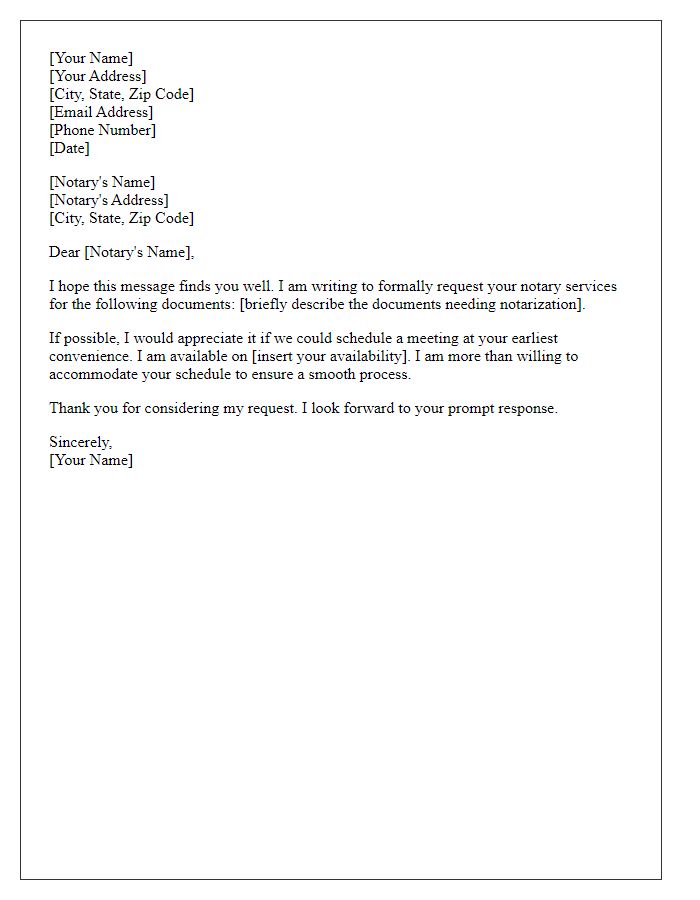
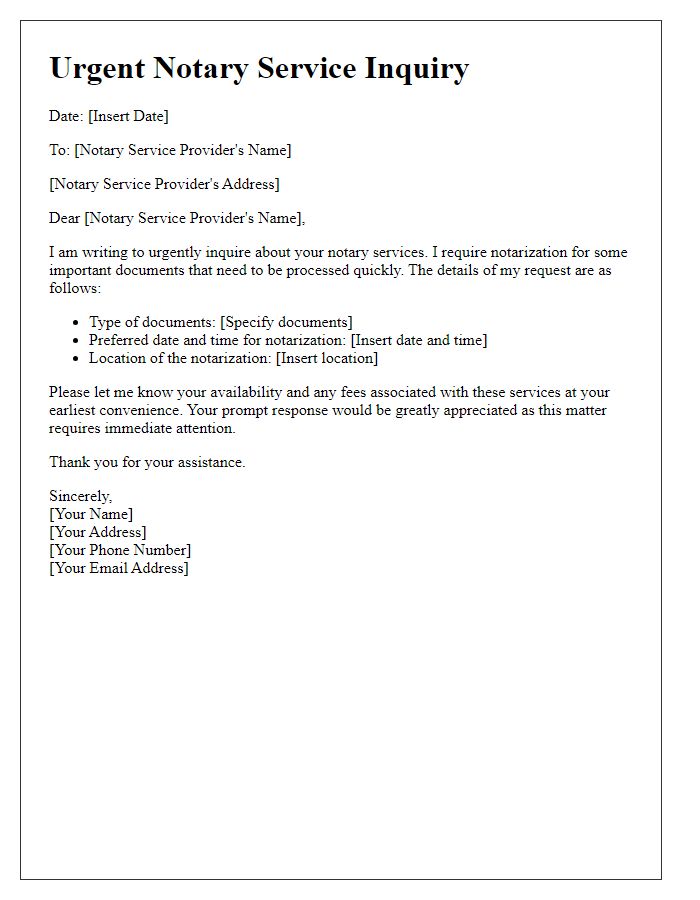
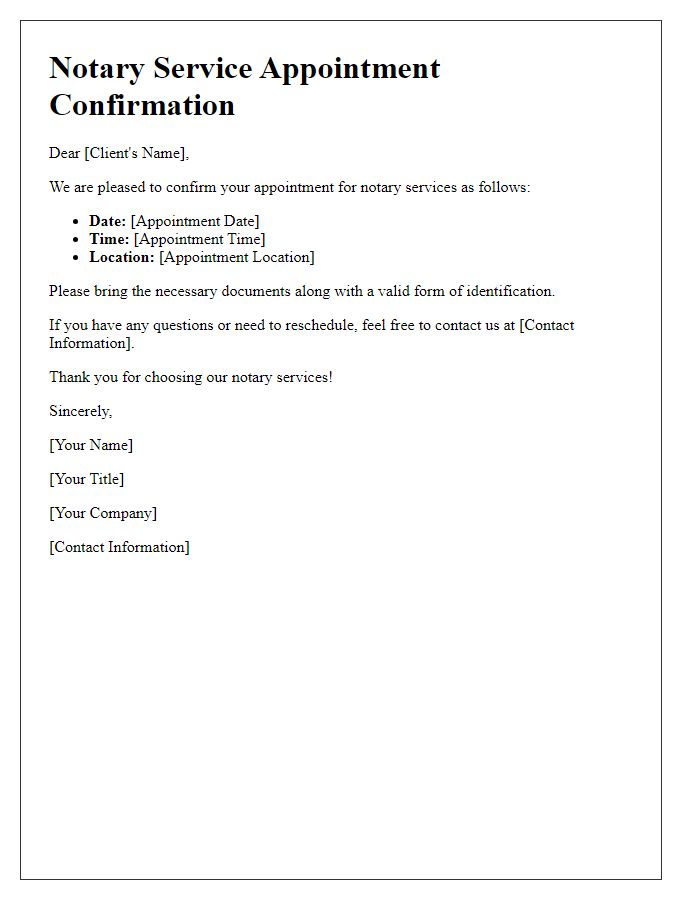
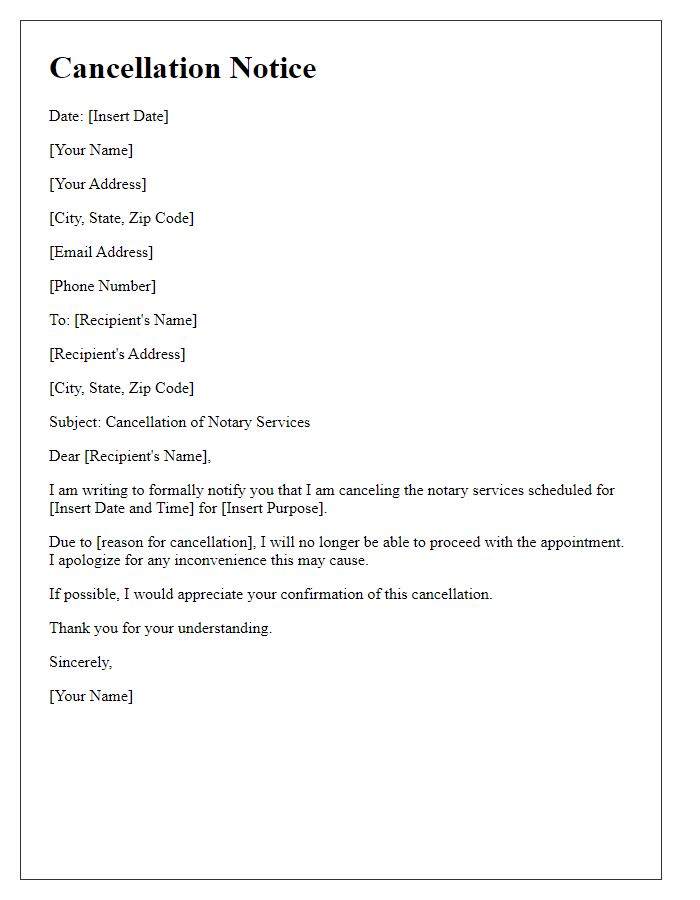
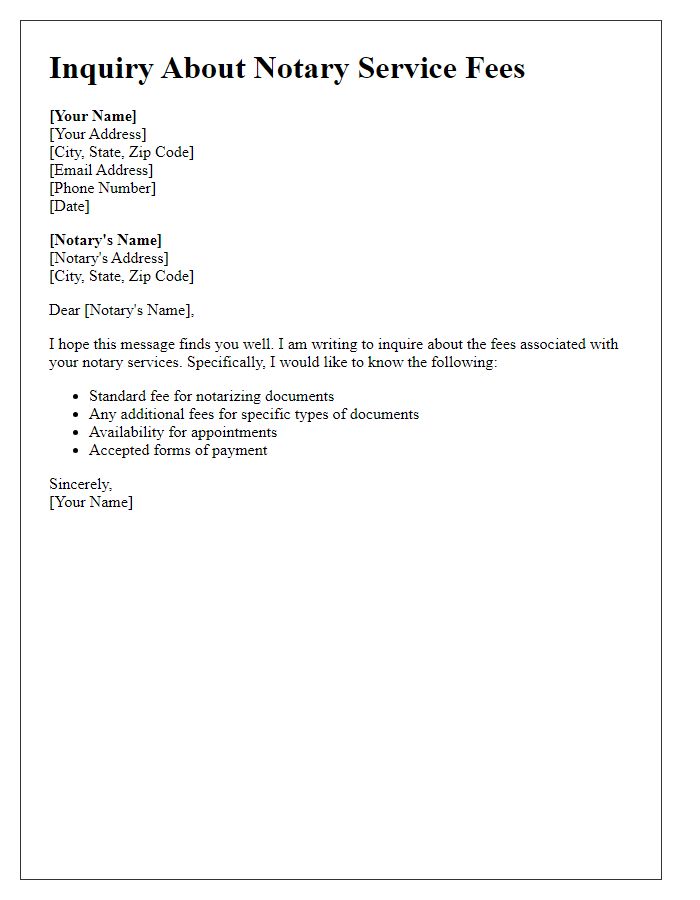
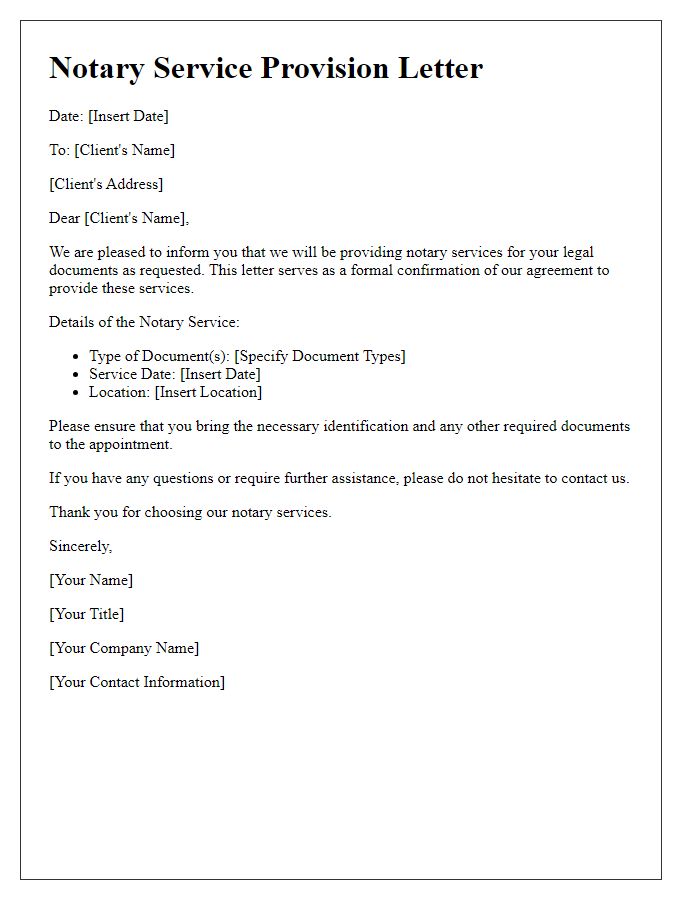
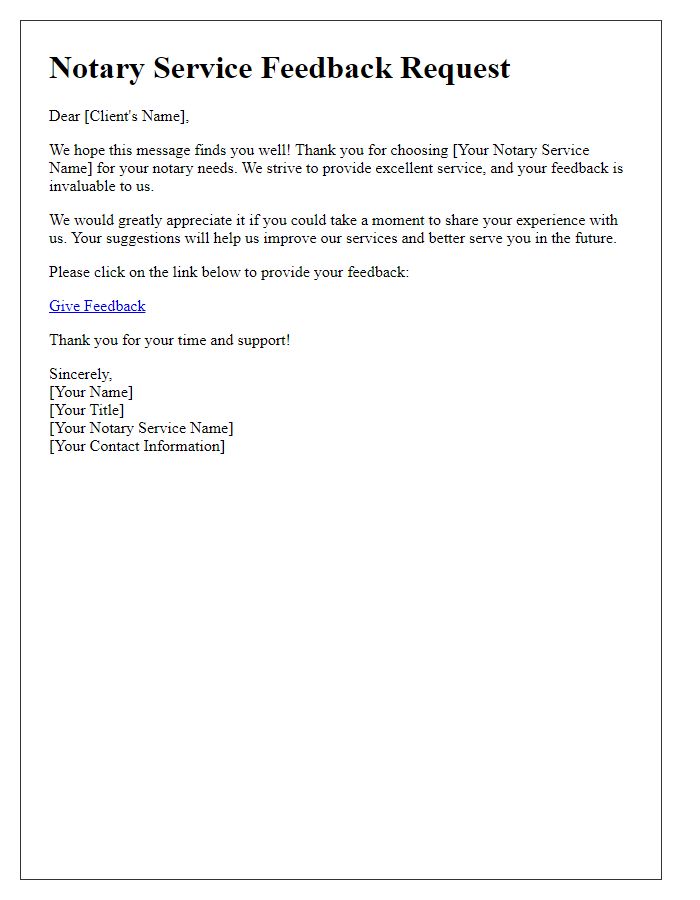
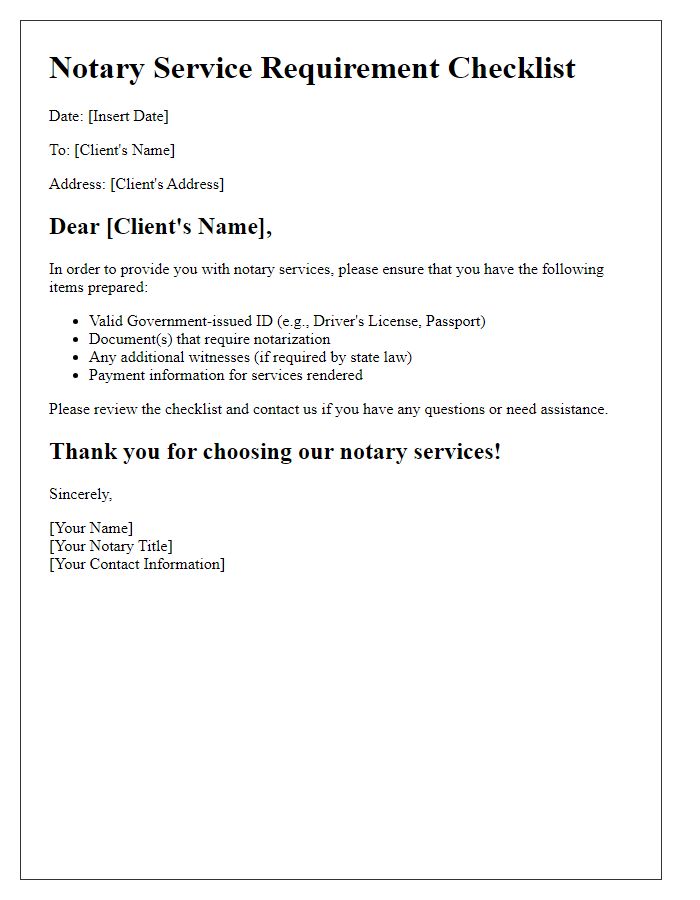
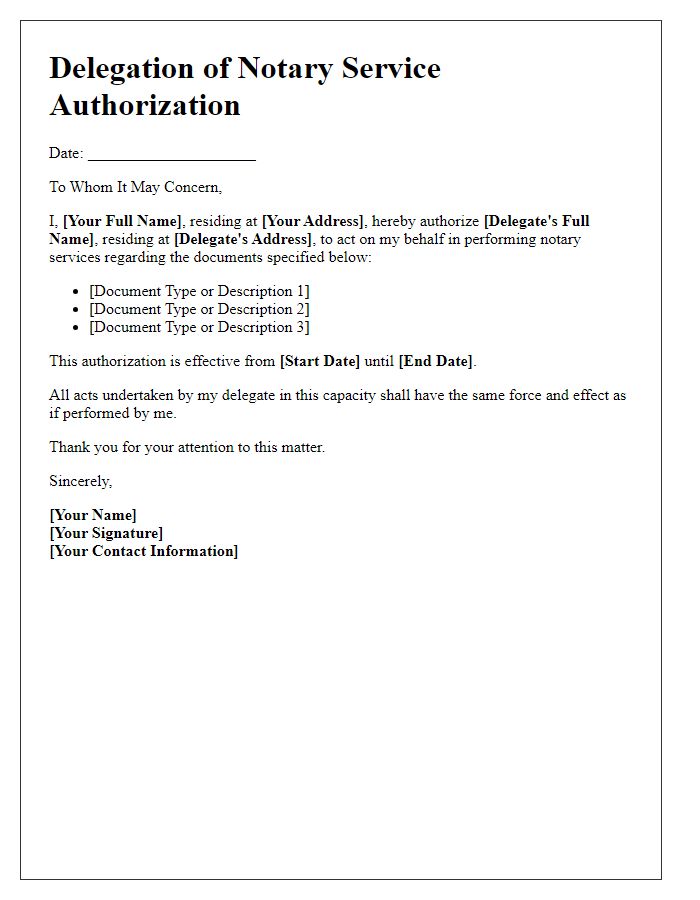
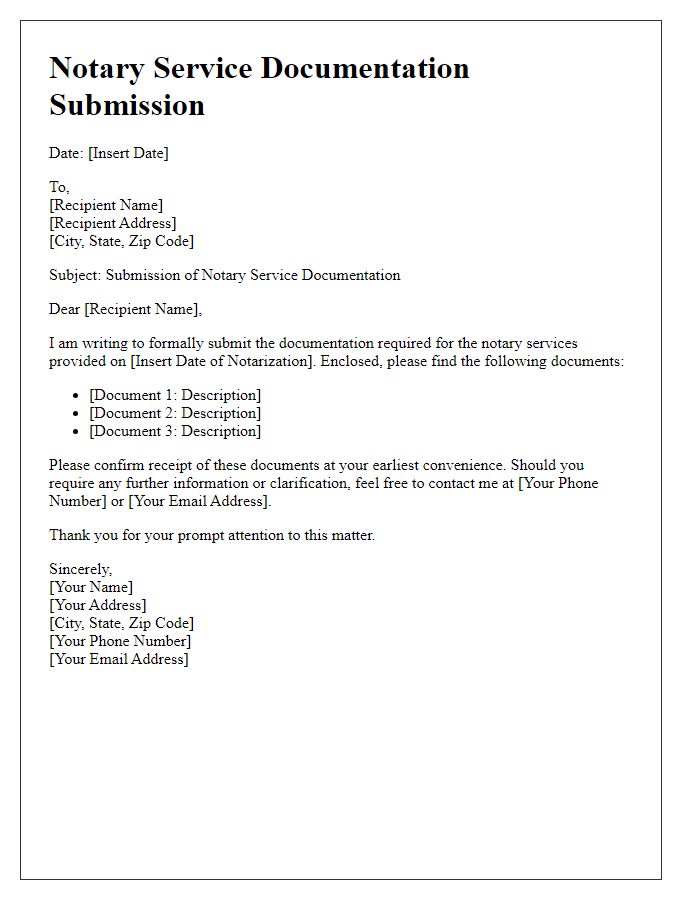

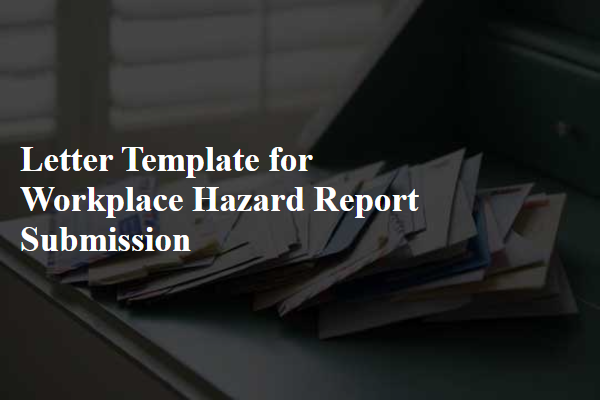
Comments